Gary Lineker: New rules for BBC flagship presenters after social media row
- Published
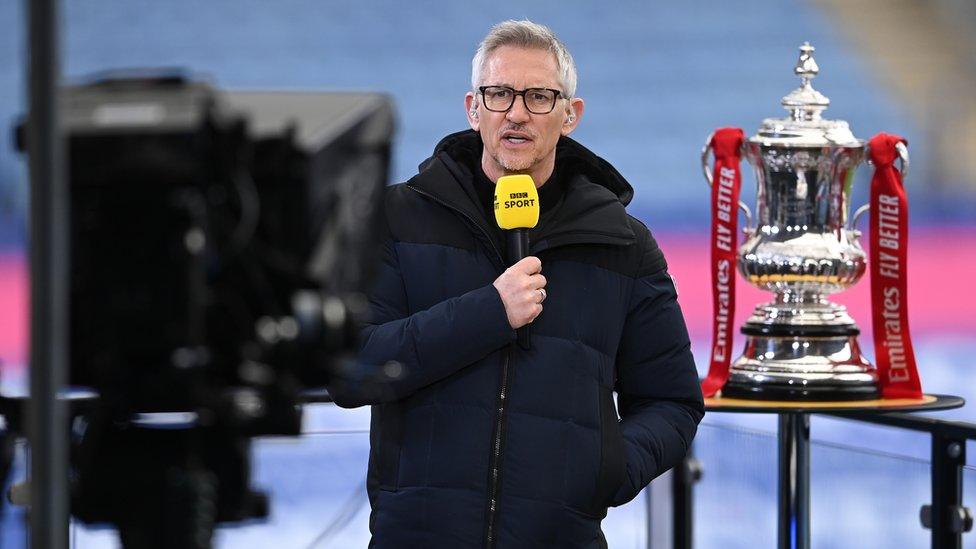
Gary Lineker was briefly suspended by the BBC earlier this year for tweets about government asylum policy
High-profile presenters should be allowed to express views on issues and policies but stop short of political campaigning, a new BBC report says.
New rules have been published for BBC flagship presenters following a row over Gary Lineker's social media posts.
It comes after a review into BBC social media guidelines was published by former ITN boss John Hardie.
Lineker responded on X, external, formerly Twitter, by saying the new rules were "all very sensible".
The new rules apply to presenters of flagship programmes outside news and current affairs, who will have "a particular responsibility to respect the BBC's impartiality, because of their profile on the BBC".
Those who work in BBC news and current affairs are already subject to stricter rules around impartiality when using social media.
The flagship programmes in the report include Match of the Day, which Lineker presents, plus The Apprentice with Alan Sugar.
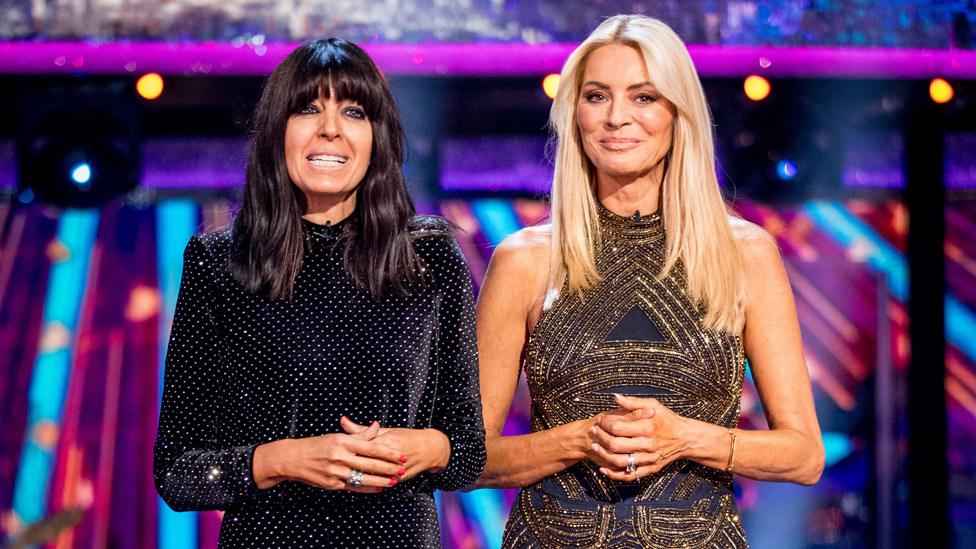
Strictly Come Dancing is named as one of the BBC's flagship shows under the new guidelines
The new guidance recognises the importance of freedom of expression, but says that while a programme is on air, and for a two-week window before and after the series, presenters on flagship shows must not endorse or attack a political party.
They must also not criticise the character of individual politicians in the UK, or comment on any issue of political debate during an election period, or take up an official role for a campaigning group.
However these guidelines could create another problem over where the line is between expressing political views, and not straying into overt political campaigning.
The other TV shows that have been classed as flagship shows are Antiques Roadshow, Dragons' Den, The One Show, major sporting events, Masterchef, Top Gear, Strictly Come Dancing.
For radio, the programmes are Radio 1's Breakfast show with Greg James, plus Radio 2's Breakfast with Zoe Ball, the mid-morning show with Vernon Kay and the afternoon slot with Scott Mills.
This list will be reviewed annually.
Breach of the new guidance may lead to disciplinary action for employees, including possible termination of employment or contracts in serious circumstances, the report said.
BBC director general Tim Davie declined to say whether Gary Lineker's social media post saying that the language in which the UK's asylum policy was set out was 'not dissimilar' to that used by Germany in the 1930s would breach new guidelines for freelance presenters.
Lineker's comments, made in March, were criticised by ministers and Downing Street, but also attracted widespread support on social media.
Mr Davie said "civility and respect" were at the heart of the guidelines.
Tim Davie: We're being clear about new social media rules
"I don't want to go back, and I'll quote John Hardie, which is we are today saying it's a clean slate", he told the BBC's culture and media editor Katie Razzall.
"So going back and doing all the archaeology for every tweet… we know that tweet caused a little bit of eruption and a huge debate and clearly there was a difference of opinion about it."
Asked about Lineker's post on X (formerly Twitter) he continued: "In a world of X and everyone shouting at each other, frankly people being rude to each other...
"There is a real overwhelming thing, the BBC wants civility and respect."
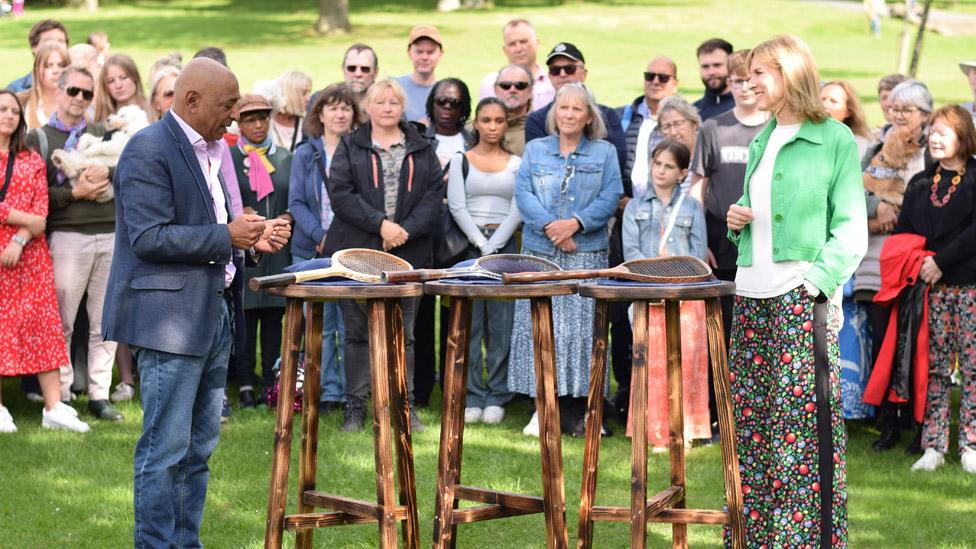
Antiques Roadshow is also one of the flagship programmes
Mr Davie stressed the updated guidance applies to people presenting major programmes, many of whom are freelancers, saying: "These people don't work for the BBC, that's really important.
"They are doing other things. I think we are trying to get the right balance, someone who is doing a programme for only a few weeks a year - I think it's appropriate we are not saying we are not restricting them for the whole year. So what we have said, is while they are on air, two weeks either side and the elections period.
"I think it's really important that we are seen as fair and balanced and impartial, but that doesn't mean you have a set of guidelines that would frankly restrict our ability to get fantastic broadcasters like Gary. We have to have that conversation."
Report author John Hardie: "I have recommended... quite clear guidance about where to not go"
Mr Hardie suggested the guidance will give more flexibility to freelance presenters who express a political opinion on social media.He branded the move a "significant change", and when asked if the new rules will give people like Lineker more flexibility, he said: "Well, absolutely."He told Razzall: "I think the previous guidance said to not take sides on issues which are party political or political controversies."And this new approach says you can do that so long as you stay to the facts of the issue itself. So that actually is a significant change."
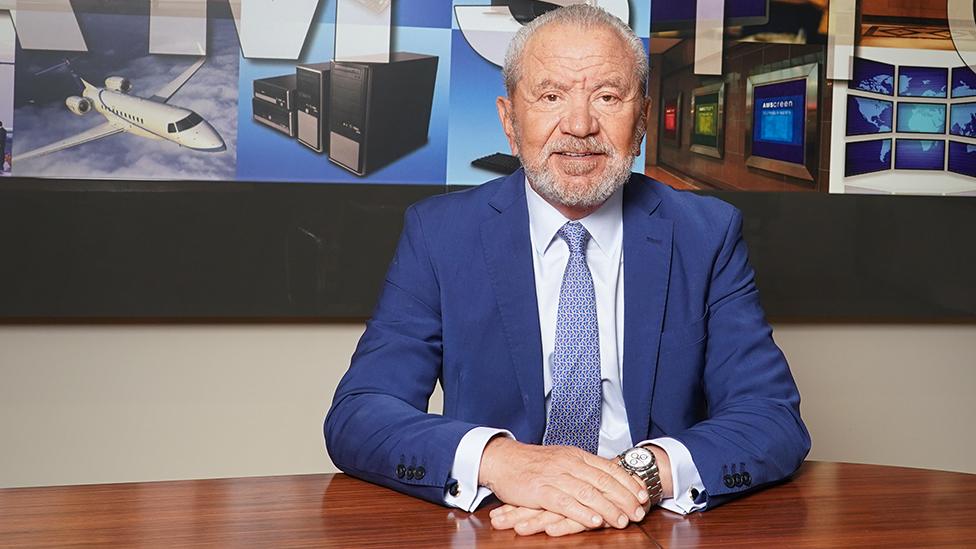
Alan Sugar presents The Apprentice on BBC One
Richard Ayre, former controller of editorial policy at the corporation, said the report was "kicking the can down the road, but the BBC didn't have any alternative".
"It's lowered the bar a little bit, for the big-name freelance presenters, they can say more than they used to be able to say," he told Razzall.
"The big test will be will they say it with the spirit of the guidelines, or will they try to push the boundaries, in which case this row will continue.
"There's very little evidence to suggest that audiences who disagree with Gary Lineker's position on immigration policy stopped watching Match of the Day. They didn't, because they watch it for the football.
"Who's worried most about what the big names say in their social media? It's not actually the audiences, it's the largely right-wing press, who don't agree there should be a publicly funded BBC, and will continue to use anything which the stars say, even under the new guidelines.
"If they can use that to suggest the BBC is not impartial, they'll go on doing it."
'Civility in public discourse'
The review of BBC social media guidelines was announced in the wake of a furore over Lineker's posts earlier this year.
The BBC said he had broken its guidelines on impartiality, and took him off air. The corporation also faced a staffing revolt, with fellow Match of the Day presenters, including Ian Wright and Alan Shearer, pulling out of the show in solidarity.
But Lineker returned a week later, with the corporation announcing the review to address "grey areas" in its rules.
The new guidelines also stress the importance of "high standards of civility in public discourse".
This includes treating others with respect, even in the face of abuse and not using offensive or aggressive language.
The BBC said the new guidance "balances freedom of expression, the responsibilities of freelancers to the BBC and the expectations of audiences, while also ensuring our rules are clear, simple, transparent and enforceable".
The report also states BBC staff and freelancers outside the flagship shows and news and current affairs are not required to uphold the BBC's impartiality on social media. But they are required to "respect civility in public discourse and to not bring the BBC into disrepute".
That includes actors, dramatists, comedians, musicians and pundits who work for the BBC.
Correction September 24: This article was edited to reflect that Gary Lineker had not compared the UK asylum plans to 1930s Germany but had posted a comment saying that the language in which the UK's asylum policy was set out was 'not dissimilar' to that used by Germany in the 1930s.
Related topics
- Published11 July 2023
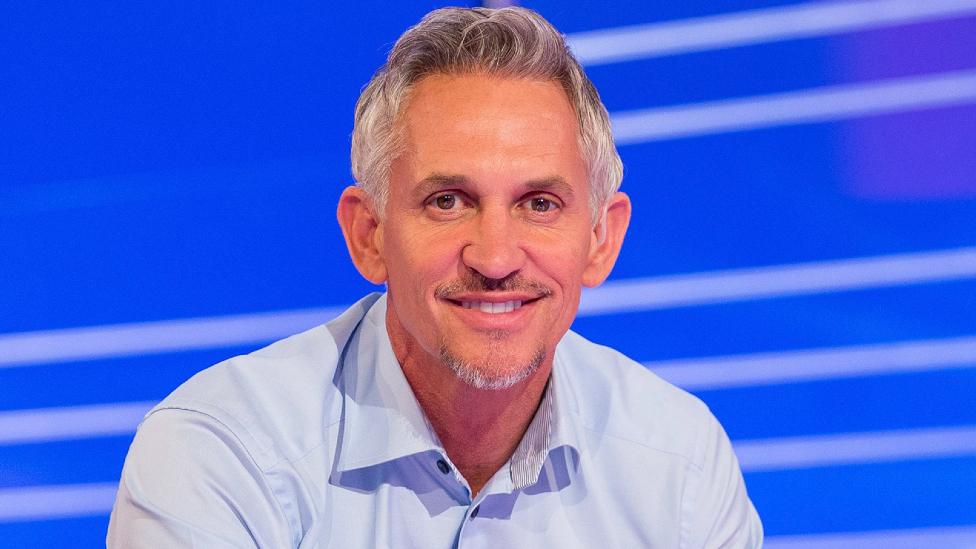
- Published31 March 2023
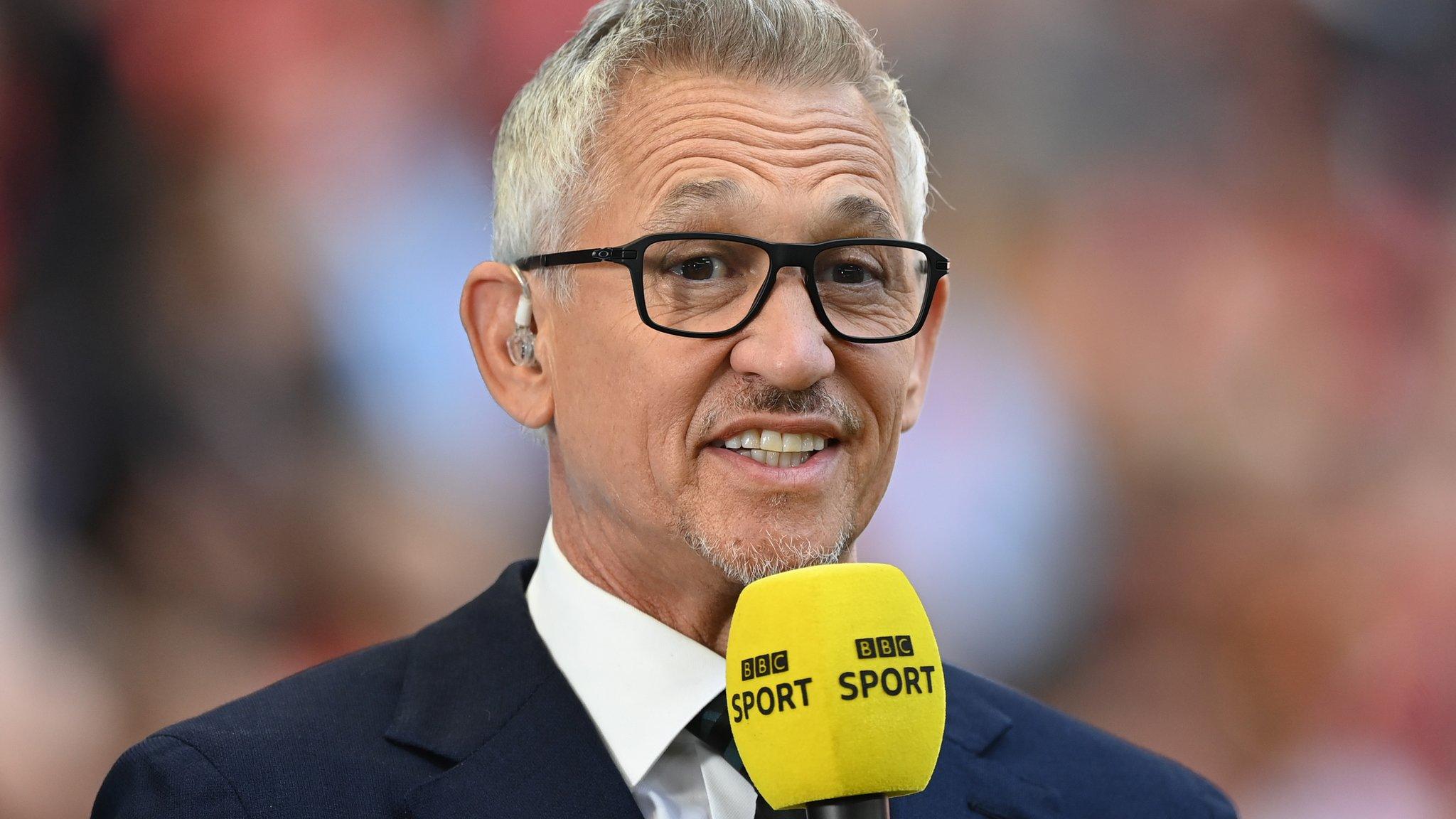
- Published27 March 2023

- Published16 March 2023
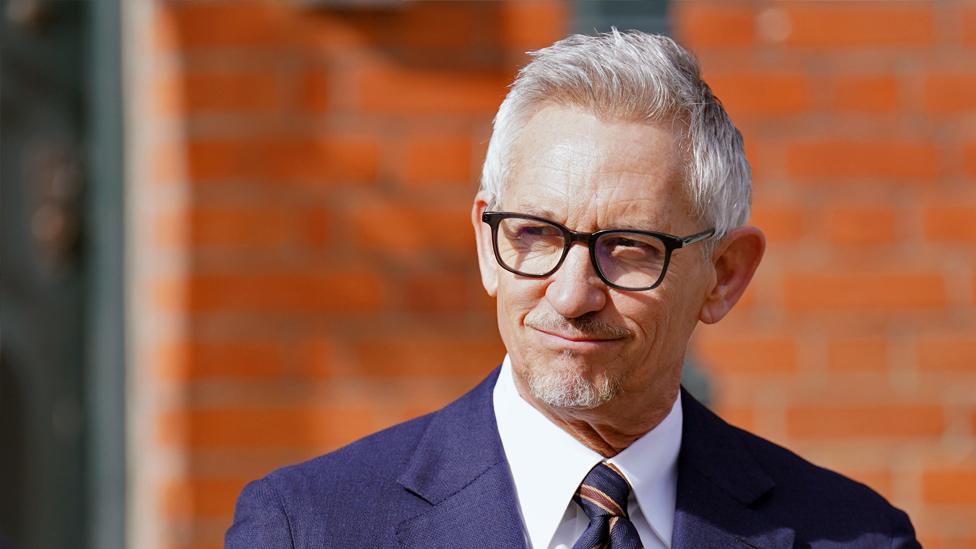
- Published13 March 2023
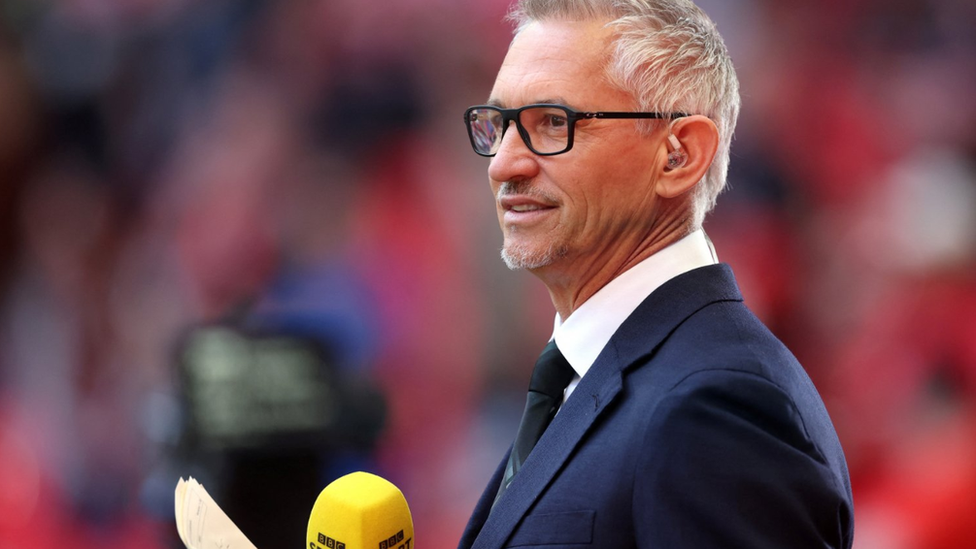
- Published10 March 2023
